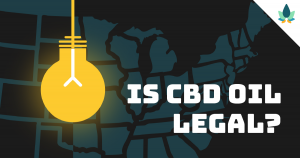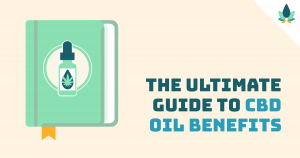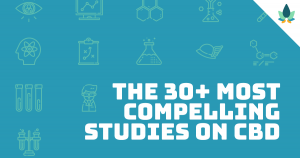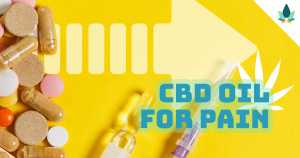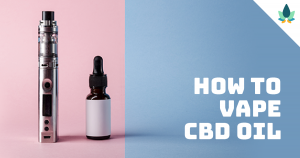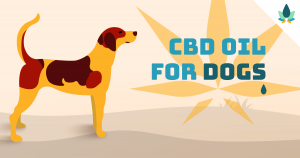Opioids: The drugs that have resulted in the highest number of addictions that the United States has ever seen (and that number is still rapidly growing).
In 2015, there were over 20,000 deaths related to prescription pain medications and nearly 13,000 deaths related to heroin. What if one of the key missing ingredients to fighting the addiction was something not only natural but widely available? What if it was as “simple” as CBD? Recent findings may surprise you. (1)
Every week in the United States, over 800 individuals die from a drug-related overdose. (2)
Drug addictions often start with prescription painkillers which have been prescribed by a medical professional following an accident, surgery, or medical procedure. CBD may also offer promise in eliminating this trigger altogether, but, we’ll get to that later.
When an individual initially uses a prescription pain killer, the chemistry in their brain changes to allow the drug to maintain pain levels. Once the drug’s usage is decreased or stopped, the brain thinks it still “needs” the support which can cause: (3)
- Low Energy
- Headaches
- Body Twitches
- Digestive Problems
- Muscle Pain
- Body Aches
- Irritability
- Anxiety
- Insomnia
- …and more.
The discomfort caused by these withdrawal symptoms often leads individuals to continue using these medications and other substances, typically with higher doses due to the tolerance that has built up. It is this cycle that leads to life-threatening problems, damage to bodily systems, and even death due to overdoses.
CBD has shown great promise in making a difference by supporting individuals through the drug withdrawal process. Research is still in the early phases, however, the results are positive so far. (4)
As we discussed earlier, there is a physiological response to drug withdrawal. Individuals who have used CBD to reduce their drug withdrawal symptoms noticed lower levels of anxiety and a reduction of overall side effects. (5)
How is this possible?
How Does CBD Work?

CBD is gaining interest as a great alternative to traditional medicine. It’s one of the many compounds found in cannabis. While many individuals are familiar with THC, the psychoactive cannabinoid responsible for the plant’s “high,” CBD offers an alternative. Lately, scientists and researchers have been looking at the therapeutic benefits of using CBD. CBD is non-psychoactive which means individuals will not get high or have an altered state of mind when using it. This fact, combined with dozens of medical benefits, makes it a suitable option for people who haven’t been able to find relief elsewhere or who want to try a more natural approach.
When CBD is used it targets receptors in the body’s endocannabinoid system, which we will discuss shortly.
Additionally, CBD is filled with omega 3 and omega 6 – two fatty acids that are essential to health, treat diseases and improve mental and physical performance. (6)
CBD In The Body
When an individual uses CBD, a few things happen to the body, specifically, the endocannabinoid system we mentioned previously.

Think of the endocannabinoid system as a sort of bridge between the mind and the body. This system is full of receptors that are found all throughout the body in various cells, organs, and tissues. Each receptor works toward a single goal: maintaining a sense of balance or homeostasis.
Endocannabinoids and their receptors allow the body to communicate. After an injury, for example, endocannabinoids decrease sensitizers around the injury and calm the immune cells to, ultimately, reduce and control inflammation.
CBD attaches to two specific receptors in the endocannabinoid system: CB1, found in the nervous system and organs, and CB2, found in the immune system. CB1 receptors help control and balance coordination, movement, emotions, and other functions. Alternatively, CB2 receptors impact inflammation and pain. Each of these receptors can be acted upon to reduce the symptoms of drug withdrawal.
CBD does not have to be used daily to be effective, which makes it a great long-term option and keeps individuals safe from relapsing or becoming addicted. A 2015 review found that CBD could be a promising treatment in helping people with opioid addiction disorders and drug withdrawal symptoms thanks to its interworking with the endocannabinoid system. (7)
Similarly, a 2009 study on rats found that they were able to “control their drug intake and drug-seeking behavior, which characterizes the chronic, relapsing disorder of drug dependence.” They also found that the CBD decreased the rats’ cravings. (8)
Many of these symptoms include anxiety, mood changes, pain, and insomnia. As we just learned, the CB1 and CB2 receptors are responsible for this and CBD targets these receptors to maintain homeostasis.
Anxiety is one of the common symptoms of drug withdrawal. Thankfully, CBD has been found to help reduce anxiety disorders as well. (9)
How To Use CBD To Reduce Withdrawal Symptoms
CBD can be used in a number of ways. For many people, using it in a tincture (dropped under the tongue) is the simplest form. However, it can also be used in food, as a topical cream, through a vaporizer, and in capsules. There are varying levels of potency and certain methods may be better than others depending on the condition. As with any new treatment, consult a trusted medical professional before making CBD part of your treatment routine.
It seems odd to use a drug to aid in drug withdrawal symptoms. However, CBD has a low toxicity which means it’s not easily addictive. While there have been no significant side effects, fatigue and appetite changes may occur. (10)
Whether using CBD is the last resort in finding relief from an established addiction or a means to a more natural treatment approach from the onset of an injury or source of pain by avoiding the introduction of opioids in the first place, it’s clear that the benefits far outweigh the side effects. Introducing CBD to your daily regimen could be a step in the right direction!



